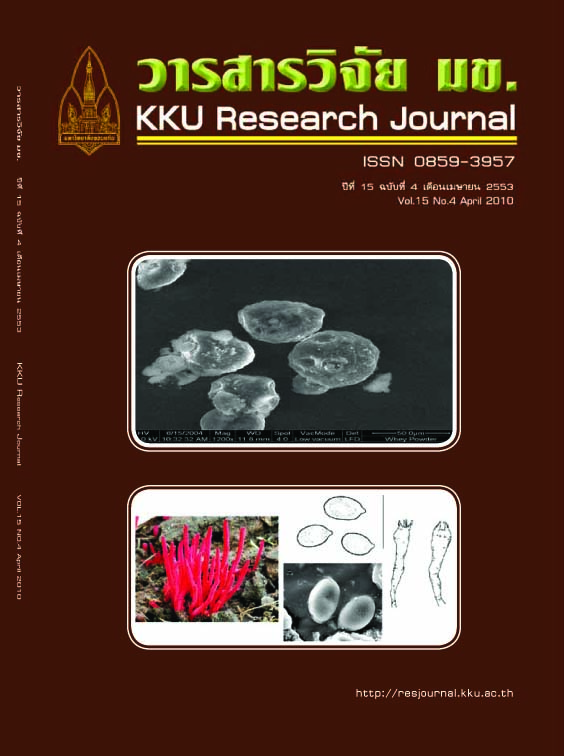The mutagenicity of a solution of sodium benzoate and vitamin c under heat and/or light treatment and their modulating effect on the mutagenicity of urethane
Main Article Content
Abstract
Nine solutions composed of sodium benzoate (1.4-5.6 mM) and vitamin C (0.7-2.8 mM) as well as four soft drinks containing both food additives were heated at 45o C for 20 hr or exposed to sunlight for 8 hr in either amber or transparent glass bottles. The water in standard fruit fly medium was replaced with each sample to create the experimental medium. Three-day old mwh+/+flr3 larvae were transferred to each experimental medium (mutagenicity evaluation) or an experimental medium that had 20 mM urethane (modulating effect on the mutagenicity of urethane study). All samples were not mutagenic; this possibly may be due to benzene formed in the reaction not being enough to express its mutagenicity. Each sample administered simultaneously with urethane slightly reduced the number of induced wing spots, suggesting that the product competitively inhibited CYP2E1 of phase 1 biotransformation. It is worth noting that enhancement of mutagenicity of urethane by heated commercial soft drinks is due the mutagenicity of some flavonoids in the orange juice concentrate used in preparation of each commercial beverage. The mutagenicity enhancing effect of orange juice detected in this experiment suggests that orange juice should be protected from light and heat during storage.


